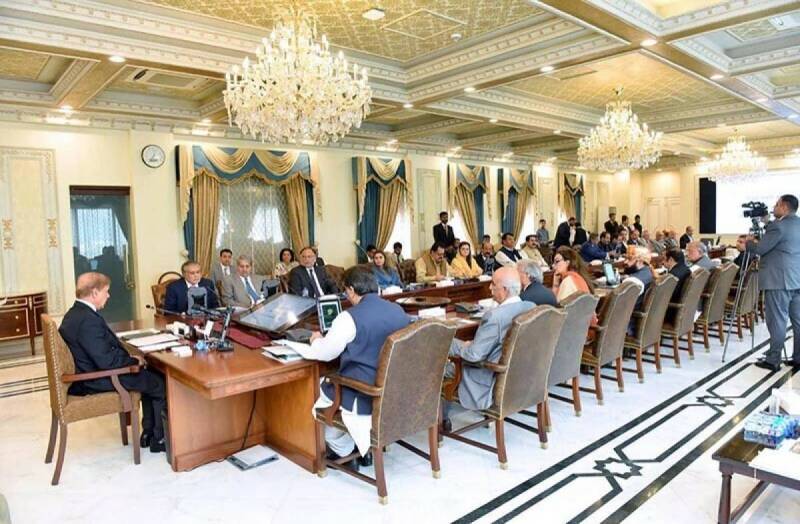The Supreme Court of Pakistan on Monday suspended the Islamabad High Court’s (IHC) verdicts dated May 29 and June 25, 2024, in the highly contentious audio leaks case involving Bushra Bibi, the wife of former Prime Minister Imran Khan, and Najam-ul-Haq, the son of former Chief Justice of Pakistan (CJP) Saqib Nisar.
The Supreme Court’s two-member bench, led by Justice Aminuddin Khan and including Justice Naeem Akhtar Afghan, heard the case and issued notices to the key figures involved, namely Bushra Bibi and Najam-ul-Haq. The bench’s decision to suspend the IHC orders reflects the gravity of the case and the complexities surrounding it.
The audio leaks case has been a subject of intense public scrutiny, given the involvement of high-profile individuals and its implications for privacy and surveillance issues in Pakistan. The case centers around alleged audio recordings involving Bushra Bibi and Najam-ul-Haq, which have sparked controversy and raised questions about the authenticity and source of these recordings.
The federal government had previously challenged the IHC’s decisions, arguing that the high court had overstepped its jurisdiction and granted relief that was not requested by the petitioners. The Supreme Court’s decision to hear the federal government’s pleas suggests a re-examination of the IHC’s handling of the case, particularly in light of concerns about judicial overreach.
During the hearing, Justice Aminuddin Khan raised critical questions about the authenticity of the audio recordings and the parties responsible for recording them. The inquiry into the authenticity of the recordings is a pivotal aspect of the case, as it directly impacts the legal standing of the evidence presented. The Additional Attorney General informed the court that the investigation into these matters is ongoing, indicating that the case is far from being resolved.
Justice Naeem Akhtar Afghan expressed his concerns about the reluctance within the country to uncover the truth, a sentiment that underscores the challenges faced by the judiciary in cases involving influential individuals. He also referenced the Supreme Court’s earlier decision to stay the inquiry commission’s proceedings, highlighting the court’s cautious approach in navigating the complexities of the case.
The Supreme Court has emphasized the need for verification of the audio recordings’ authenticity, a process that will be crucial in determining the outcome of the case. The court also questioned whether the Islamabad High Court had adequately considered this aspect when issuing its orders.
The federal government’s appeal against the IHC’s verdicts is rooted in its assertion that the high court exceeded its jurisdiction under Article 199 of the Constitution. The government contends that the IHC’s decision is not only contrary to the facts of the case but also represents an overreach in its judicial authority. The appeal further argues that the IHC granted relief that was not sought by the petitioners, thereby raising questions about the appropriateness of the court’s actions.
One of the central arguments in the government’s appeal is that the Islamabad High Court does not have the authority to conduct investigations, a role traditionally reserved for investigative agencies. This point is crucial, as it challenges the IHC’s involvement in fact-finding processes that the government believes fall outside the court’s purview.
The Islamabad High Court, in its earlier rulings, had declared that any form of surveillance on citizens is illegal and unconstitutional. This declaration was made in the context of the audio leaks case, where the IHC questioned the legality of surveillance activities allegedly conducted by government agencies. The court had asked Prime Minister Shehbaz Sharif to clarify who was responsible for the mass surveillance of citizens, a directive that underscored the broader implications of the case for privacy rights in Pakistan.
In a written order issued by IHC Justice Babar Sattar, the federal government was held accountable for the surveillance of millions of citizens. The order also mandated that Prime Minister Shehbaz Sharif and his cabinet members submit a report detailing the legal framework governing the surveillance system within six weeks. The report was expected to clarify whether the surveillance was being conducted in accordance with the law and the Constitution.
The IHC’s ruling also included a contempt of court notice issued to the Pakistan Telecommunication Authority (PTA) Chairman and its members. The notice directed them to submit a response within six weeks, addressing concerns about the PTA’s interpretation of the surveillance system.
The Supreme Court’s suspension of the IHC’s orders indicates that the case will undergo further scrutiny, with the top court taking a closer look at the legal and factual aspects of the matter. The investigation into the authenticity of the audio recordings and the broader implications for privacy and surveillance in Pakistan will likely be central to the court’s deliberations.
As the case progresses, it will continue to attract public attention, given its potential to set precedents in areas such as judicial authority, privacy rights, and the limits of government surveillance. The involvement of high-profile individuals adds an additional layer of complexity to the case, ensuring that it remains a focal point in Pakistan’s legal landscape.




